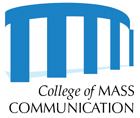
About the Center for Popular Music
The Center for Popular Music at Middle Tennessee State University was established in 1985 as a state-sponsored Center for Excellence. In 2009 it became a constituent unit in the University's College of Mass Communication, where it supports both student development and faculty research.
The Center's scholarly mission is to promote research in American vernacular music, and to foster an understanding and appreciation of America's diverse musical culture. Thus, the Center:
- maintains a large research library and archive
- presents public programs that interpret various aspects of American vernacular music
- engages in original research projects
- disseminates the results of research via publications in various media
The Center's collections document the diversity of American music. We take as a starting point the multicultural and international origins of American society, and archive materials that document those traditions and the ways in which they contributed to the formation of national musical cultures. From the 18th to early 20th century music was often disseminated in printed form: sheet music, songsters, broadsides, instrumental instruction books, song anthologies, and the like. After 1920, recorded sound gained dominance. The Center's collections reflect these forms of music commodification.
The Center recognizes the interplay between musical styles in American culture by providing study-level collections in all genres. Rather than duplicating collections found in specialized archives, the Center strives to support local research needs in all genres while providing research-level collections in special areas, specifically in rock music and its roots, various forms of vernacular religious music, and the music of Tennessee and the Southeast.
The key element supporting the study of rock is a sound recordings collection strong in rock 'n' roll, blues, rhythm and blues, mainstream rock from the 1960s to the present, and alternative rock. The Center also has extensive holdings of rock music periodicals as well as biographical, historical and critical books.
Research in vernacular religious music is supported through a rich trove of scores, including southern gospel songbooks, 19th-century oblong tunebooks, New England hymnody, shape note music, Sunday school songs, African American spirituals, and African American gospel and denominational hymnals.
Our collection of southern gospel songbooks is thought to be the largest institutional collection held by a non-religious repository. The Center's sound recording collection is also deep in various African American traditions, contemporary Christian music, and southern gospel. In addition to commercial issues, the Center has several hundred hours of original field recordings of African American religious music.
The Center's collection of Tennessee and southeastern materials acknowledges that Tennessee provides a marvelous laboratory in which to study popular music. Ragtime, jazz, blues, Anglo-American and African American folk music, country, gospel, and rock have all flourished within Tennessee. The music business of Tennessee has long been an important segment of Tennessee's economy. In addition to Nashville, the cities of Memphis, Knoxville, Bristol, Chattanooga, Cleveland, and Lawrenceburg have played significant roles in music publishing, broadcasting, and recording. The Center's collection documents these business activities as well as musical ones.





